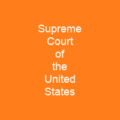What is a Supreme Court?
A supreme court is often described as the pinnacle of judicial authority, but what exactly does that mean? It’s like the crown jewel in a country’s legal system, where decisions made here can shape the very fabric of society. In most legal jurisdictions, it’s the highest court within the hierarchy of courts, with its rulings binding on all other courts.
The Genesis of Supreme Courts
How did this concept come to be? The idea of a supreme court owes much to the framers of the Constitution of the United States. In 1787, they established the parameters for the national judiciary, setting a precedent that would be emulated around the world.
The Supreme Court in Action
Let’s take a closer look at some examples. The High Court of Australia, for instance, is the supreme court and final court of appeal, with original and appellate jurisdiction. It’s like the ultimate referee in a game where every decision can have far-reaching consequences.
Diverse Jurisdictions, Diverse Systems
In some countries, there’s just one highest court, while others have multiple supreme courts or separate constitutional courts. For example, Bangladesh has two divisions: Appellate Division and High Court Division. The Appellate Division is the highest court of appeal, while the High Court Division handles writ/judicial review, company, and admiralty matters.
Supreme Courts in Common Law Jurisdictions
In common law jurisdictions like Australia, the doctrine of stare decisis applies. This means that principles applied by the supreme court are binding on all lower courts. It’s a bit like setting a precedent, where once something is decided, it becomes the norm.
Supreme Courts in Civil Law Jurisdictions
Civil law jurisdictions follow Roman law and the Corpus Juris Civilis as their historical model. Many civil codes codify their laws since the late 18th century. For instance, Argentina’s Supreme Court functions as a last resort tribunal, deciding on cases dealing with constitutional interpretation.
The Role of Constitutional Courts
In some countries, there are separate constitutional courts or judicial bodies responsible for interpreting the constitution and ensuring laws comply with it. For example, in Israel, the Supreme Court is at the head of the court system and sits in Jerusalem. It considers cases on appeal and rules as a court of first instance in matters related to the legality of state decisions.
The Supreme Court of the United States: A Beacon of Judicial Authority
Let’s not forget about the Supreme Court of the United States. Established in 1789, it has final appellate powers over the federal court system. It’s like a lighthouse guiding ships through treacherous waters, ensuring that justice is served.
Diverse Systems and Titles
The titles for judicial officeholders can cause confusion within jurisdictions. For example, in New York, the Supreme Court is actually a lower court, while other states might use different titles like ‘Court of Appeals’ or ‘Supreme Judicial Court.’ It’s like a game of hide and seek where you have to know the rules.
Conclusion: The Supreme Court’s Role in Society
The supreme court plays a crucial role in shaping laws, interpreting constitutions, and ensuring justice is served. Whether it’s deciding on constitutional matters or handling appeals, these courts are the ultimate arbiters of legal disputes. As we navigate through the complexities of law, the supreme court remains a beacon of fairness and equity.

You want to know more about Supreme court?
This page is based on the article Supreme court published in Wikipedia (retrieved on March 5, 2025) and was automatically summarized using artificial intelligence.





